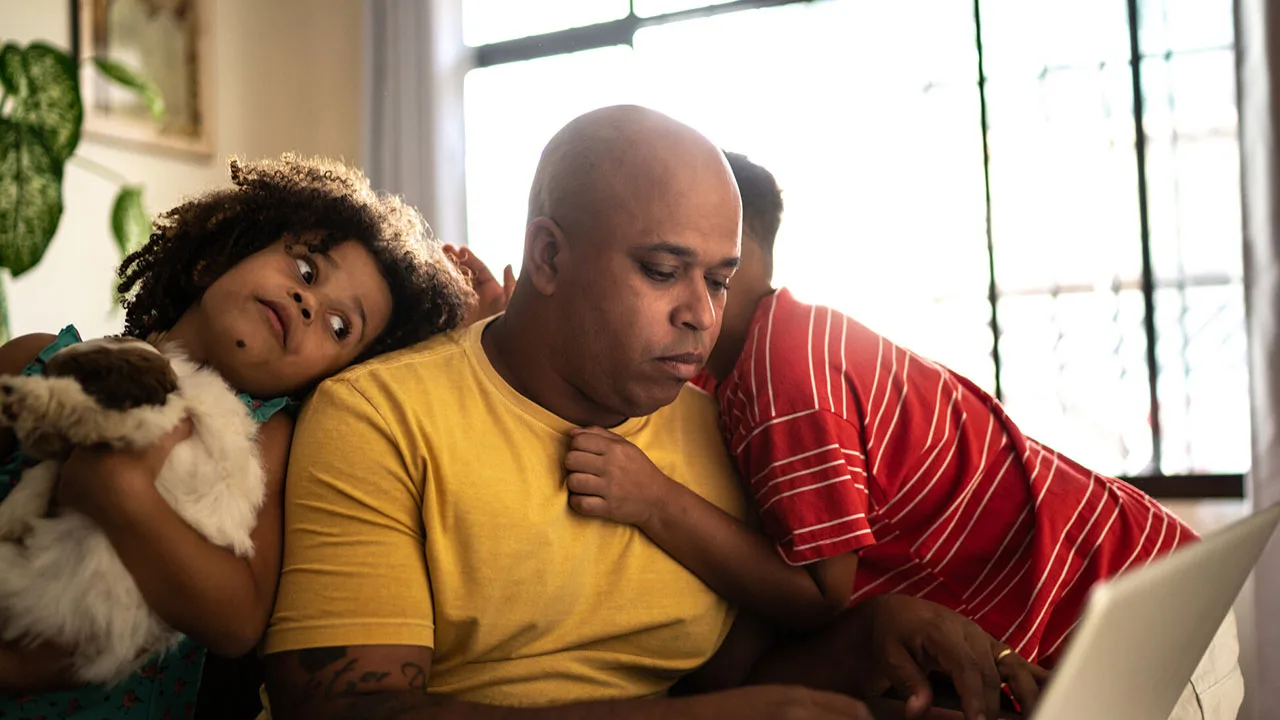At Achieve, we're committed to providing you with the most accurate, relevant and helpful financial information. While some of our content may include references to products or services we offer, our editorial integrity ensures that our experts’ opinions aren’t influenced by compensation.
Debt Relief
How much debt do you need to file for Chapter 7 bankruptcy?
Feb 19, 2025
Written by
Reviewed by
Key takeaways:
There is no minimum amount of debt required to file for Chapter 7 bankruptcy protection. What matters more is whether you can afford a monthly payment.
Chapter 7 could wipe out many kinds of debts, like credit cards and medical bills. Chapter 7 doesn’t eliminate tax debt, child support, federal student or certain other kinds of debt.
If bankruptcy isn’t the best fit, you could try other strategies, such as negotiating with your creditors for partial debt forgiveness.
If you’re wondering about bankruptcy, that might mean you have a serious financial situation to deal with. Taking control of your financial future is a brave step. The way to get to the other side of your debt is to choose the best path there.
Our job is to explain the choices. Chapter 7 bankruptcy might be the right path. If it isn’t, we’ll show you other ideas to explore.
Chapter 7 bankruptcy: a refresher
What is Chapter 7 bankruptcy? Bankruptcy is a legal process to deal with debt. Chapter 7 is sometimes called the clean slate bankruptcy because if you qualify, you could have your unsecured debts totally forgiven.
When you file a bankruptcy petition, you ask the court to discharge (forgive) your debts. When debt is discharged in bankruptcy, you no longer have to pay it.
You could be a good candidate for Chapter 7 bankruptcy if you:
Mostly owe unsecured debts like credit cards, personal loans, or medical bills
Can't afford to pay back what you owe and don't expect your financial situation to change any time soon
Don't own a lot of assets, like multiple cars. In some states, you could even lose your home under certain conditions.
Chapter 7 doesn't address any of the issues that caused your debt, but it can take financial stress off your shoulders.
Do you need a certain amount of debt to qualify for Chapter 7 bankruptcy?
There is no minimum amount of debt someone needs to qualify for Chapter 7 bankruptcy. You could file Chapter 7 if you owe $5,000, $500,000, or $5,000,000.
You do need to pass something called a means test to qualify for the Chapter 7 program. The means test measures your ability to pay back some or all of what you owe. This test hinges on three factors:
Income
Expenses
Household size
The bankruptcy court uses this test to calculate whether you have enough disposable income each month to pay something toward your debt. Your disposable income is the money left over after you pay basic living expenses. Your income and expenses will be compared to the average income and expenses for a same-sized household in the area where you live.
It can get a little complicated, so here's the takeaway: If you pass the means test, you qualify for Chapter 7.
The means test exists to make sure that no one takes advantage of bankruptcy to avoid debts they can afford to pay.
Signs that Chapter 7 bankruptcy might be right for you
You've taken a good look at your financial situation and you wonder if Chapter 7 is the answer you need. Here are some signs that bankruptcy could be the right choice.
It's a struggle to pay even the minimum amount due toward your debts because your expenses are too high, your income is too low, or a combination of both.
Your payments don't make much of a dent in the balance.
Creditors call you frequently to ask for payment toward past-due debts, or you get collection letters in the mail.
You received notice that a creditor has filed a debt lawsuit against you.
Your wages or bank account are under threat of garnishment for unpaid debts.
Maybe it's one of these things, or maybe it's all of them that affect you. Regardless, bankruptcy might provide relief in these scenarios.
Pros and cons of filing for Chapter 7 bankruptcy protection
Bankruptcy has advantages and disadvantages. It helps to look at both sides to make a final decision on whether to file.
Pros
Chapter 7 bankruptcy can eliminate a variety of debts so you don't owe them anymore.
Bankruptcy protection can stop creditor lawsuits and collection calls.
You're doing something about your debts.
Once your bankruptcy case is discharged, you can refocus your energy on creating a better financial future.
Cons
You may have to give up some of the things you own to the bankruptcy court.
Bankruptcy may not eliminate all of the debts you owe.
Your credit score will suffer, which could take time to repair.
You'll pay fees to file unless you qualify for a waiver. You might also pay attorney fees.
If your income is too high, you won’t qualify for Chapter 7.
If you think you might be a candidate, it’s a good idea to talk to an attorney in your area who specializes in bankruptcy.
If you don’t think bankruptcy is the right fit, it's time to look at other solutions.
Other options for dealing with debt
Everyone's debt situation is different, and there are numerous ways to deal with it. Here are some possibilities if you need alternatives to Chapter 7 bankruptcy.
Negotiate with your creditors. If you’re struggling, let your creditors know what’s going on, especially if you’ve already fallen behind. Make your creditor an offer you can afford, and ask them to forgive the rest.
Enroll in a debt relief program. If negotiating isn’t your cup of tea, you could let a reputable professional debt relief company negotiate for you. They may already have relationships with your creditors.
Enroll in a debt management plan. A DMP is a structured plan to fully repay what you owe. This option is designed for people who have $7,500 in credit card debt. Your creditors might be willing to reduce your interest rate or waive certain fees, but you'll have to close your credit card accounts. DMPs are managed by nonprofit credit counseling agencies.
DIY your debt payoff. Look for extra cash you could apply toward your debt balances. Sell things you don't need, and use the money to pay down debt. Get a part-time job or start a side hustle, if possible, and apply the extra income to your debt. Even a few extra dollars at a time can help.
You can talk to a debt expert to find out which path might make the most sense.
What's next
Make a realistic assessment of your finances that includes your income, expenses, and debt.
Talk to a bankruptcy attorney to learn more about the process and get their opinion on whether it's appropriate for your situation.
Meet with a debt expert to discuss bankruptcy alternatives, like debt consolidation or debt relief.
Author Information
Written by
Rebecca is a senior contributing writer and debt expert. She's a Certified Educator in Personal Finance and a banking expert for Forbes Advisor. In addition to writing for online publications, Rebecca owns a personal finance website dedicated to teaching women how to take control of their money.
Reviewed by
Jill is a personal finance editor at Achieve. For more than 10 years, she has been writing and editing helpful content on everything that touches a person’s finances, from Medicare to retirement plan rollovers to creating a spending budget.
Frequently asked questions
Federal bankruptcy laws allow you to claim exemptions (exemptions are things you can keep). States also have exemptions. Whether you can use federal or state exemptions depends on where you file. Exemptions include things like furniture and household goods, some home equity, tools of the trade you use for work, unemployment or Social Security benefits you receive, and certain retirement accounts.
Chapter 7 bankruptcy stays on your credit report for 10 years from the date you file. It's automatically removed after the 10-year mark. A bankruptcy on your credit reports can make it harder to get approved for credit initially, but the negative impact tends to fade over time.
Chapter 7 bankruptcy can discharge a wide range of debts. You could use it to eliminate:
Credit cards
Medical bills
Personal loans
Collection accounts
Unpaid utility bills
Back rent
Balances owed for repossessions
Business debt
Most civil court judgments
Old tax debt
Attorneys' fees
Bankruptcy won't get rid of all debts, however. Generally, you can't use Chapter 7 bankruptcy to wipe out alimony, child support, or debts you incur through fraud or criminal activity.
Related Articles
Credit card debt can keep you from pursuing your other financial goals. Learn how to pay off credit card debt with practical, actionable tips.
Medical bill forgiveness could dramatically reduce what you owe. Learn how to get medical debt forgiven through hospital programs, charities, and state help.
Credit card debt forgiveness is possible under certain circumstances. Read on to find out if you might qualify for it.



